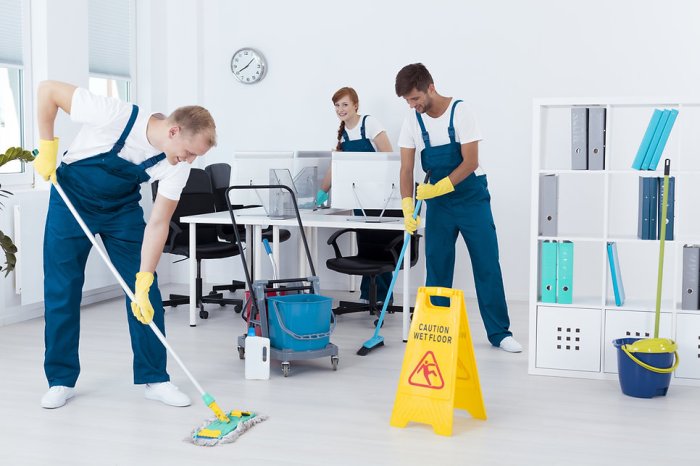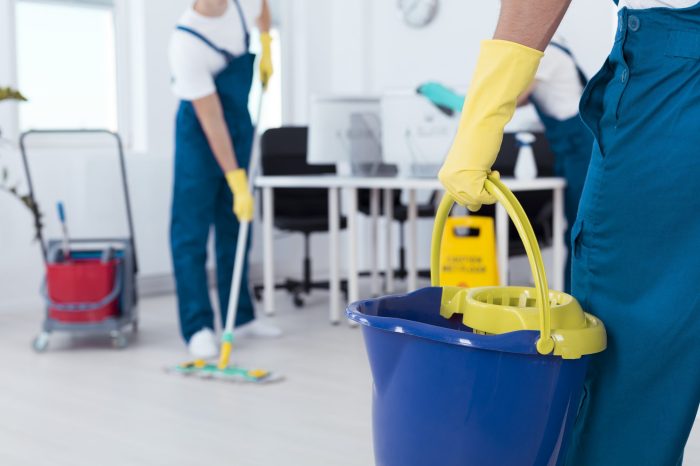The unexpected can strike any business, and for cleaning services, unforeseen accidents or damages can quickly escalate into significant financial burdens. Understanding cleaning insurance isn’t just about compliance; it’s about safeguarding your investment, your reputation, and your peace of mind. This guide delves into the intricacies of cleaning insurance, exploring various policy types, coverage specifics, and the crucial steps to finding the right protection for your unique needs.
From defining the different types of available policies and their coverage to navigating the complexities of claims and premium calculations, we aim to provide a clear and concise understanding of this essential aspect of running a successful cleaning business. We’ll also explore the legal implications of adequate insurance coverage and offer practical advice on selecting a reputable provider.
Defining Cleaning Insurance

Cleaning insurance, also known as commercial cleaning insurance, protects cleaning businesses from financial losses resulting from various incidents and liabilities associated with their operations. It’s a crucial aspect of risk management for any cleaning company, regardless of size or specialization. Understanding the different types and coverage options is essential for securing adequate protection.
Types of Cleaning Insurance Policies
Several types of cleaning insurance policies cater to the specific needs of cleaning businesses. The choice depends on the size, scope, and nature of the operations. Common types include general liability insurance, professional liability insurance (also known as errors and omissions insurance), commercial auto insurance, and workers’ compensation insurance. Some businesses may also opt for additional coverages like equipment insurance or commercial property insurance.
Standard Coverage in Cleaning Insurance
A standard cleaning insurance policy typically includes general liability coverage, which protects against claims of bodily injury or property damage caused by the cleaning business’s operations. For example, if a client slips and falls due to a wet floor left unattended by a cleaning crew, general liability insurance would cover the resulting medical expenses and potential legal fees. Professional liability insurance, on the other hand, safeguards against claims of negligence or errors in the cleaning services provided. This could cover situations where a cleaning solution damages a client’s valuable item, or if a cleaning service misses a critical cleaning step resulting in damage or loss.
Comparison with Other Business Insurance
Cleaning insurance differs from other types of business insurance in its focus on the specific risks associated with cleaning services. While general business insurance offers broad protection, cleaning insurance provides specialized coverage for the unique liabilities and potential incidents encountered in this industry. For example, while a general business policy might cover property damage, a cleaning insurance policy specifically addresses the risk of damage caused by cleaning products or methods. Similarly, professional liability insurance is specifically tailored to the professional services rendered by cleaning businesses, unlike other business insurances which may not fully address professional negligence.
Situations Where Cleaning Insurance is Beneficial
Cleaning insurance proves invaluable in numerous situations. Consider a scenario where a cleaning employee accidentally damages a client’s expensive antique furniture while cleaning. Cleaning insurance would cover the cost of repair or replacement. Another example involves a client tripping over cleaning equipment left unattended in a hallway. The insurance would cover medical expenses and legal costs associated with the resulting injury claim. Further, if a cleaning company’s vehicle is involved in an accident while transporting cleaning supplies, commercial auto insurance, a component of cleaning insurance, would cover damages and liabilities. In the case of an employee injury on the job, workers’ compensation insurance would cover medical bills and lost wages. These are just a few examples illustrating the importance of comprehensive cleaning insurance.
Legal and Regulatory Aspects

Operating a cleaning business involves navigating a complex legal landscape, and securing the right insurance is paramount for protecting your business and mitigating potential risks. Failure to do so can lead to significant financial and legal repercussions. This section details the legal requirements, implications of inadequate coverage, common legal issues, and the crucial role of insurance in safeguarding your cleaning business from liability.
Legal Requirements for Cleaning Business Insurance
The specific legal requirements for cleaning business insurance vary depending on location (state, province, or country), the size of the business, and the types of services offered. However, many jurisdictions mandate specific types of insurance, such as general liability insurance, which protects against claims of bodily injury or property damage caused by the business’s operations. Workers’ compensation insurance is another common requirement, protecting employees in case of workplace injuries. Further requirements might include commercial auto insurance if the business uses vehicles for transportation and professional indemnity insurance to protect against claims of negligence or errors in professional services. It’s crucial to consult with legal and insurance professionals to ensure full compliance with all applicable regulations in your area.
Implications of Operating Without Adequate Insurance
Operating a cleaning business without adequate insurance exposes the business to substantial financial and legal risks. A single incident, such as an employee injury or property damage caused during cleaning, could lead to costly lawsuits. Without insurance, the business would be solely responsible for covering all related expenses, including medical bills, legal fees, and potential settlements or judgments. This could easily bankrupt a small business. Furthermore, operating without required insurance can result in significant fines and penalties imposed by regulatory bodies.
Examples of Common Legal Issues and Insurance Coverage
Cleaning businesses face various legal issues, many of which can be mitigated with appropriate insurance coverage. For example, a customer might claim that their valuable item was damaged during the cleaning process. General liability insurance would cover the cost of repairing or replacing the damaged item, as well as legal fees associated with defending the claim. Another example is an employee slipping and falling on a client’s property, resulting in injury. Workers’ compensation insurance would cover the employee’s medical expenses and lost wages. If a cleaning employee causes damage to a client’s property, general liability insurance would cover the cost of repairs. In the event of a data breach involving client information (if the business handles such data), cyber liability insurance would be beneficial.
The Role of Insurance in Protecting Against Liability
Insurance plays a crucial role in protecting a cleaning business from liability by providing financial protection against potential claims. It acts as a safety net, covering costs associated with lawsuits, settlements, and legal fees. This protection is vital in maintaining the business’s financial stability and reputation. Furthermore, having adequate insurance demonstrates professionalism and responsibility to clients, increasing their confidence in the business. It can also help avoid business interruption by covering lost income during periods when the business is unable to operate due to legal issues or claims.
End of Discussion

Successfully navigating the world of cleaning insurance requires careful consideration of your business’s specific needs and a thorough understanding of policy details. By diligently comparing providers, understanding coverage limitations, and proactively addressing potential risks, you can secure the appropriate level of protection. This proactive approach not only mitigates financial risks but also fosters a sense of confidence, allowing you to focus on delivering exceptional cleaning services and growing your business with peace of mind.
Questions Often Asked
What is the difference between general liability and professional liability insurance for cleaning businesses?
General liability covers bodily injury or property damage caused by your business operations. Professional liability (errors and omissions insurance) covers claims arising from mistakes or negligence in your cleaning services, such as damage to a client’s property due to improper cleaning techniques.
How do I prove a claim under my cleaning insurance policy?
You typically need to report the incident promptly to your insurer, provide detailed documentation (police reports, photos, invoices), and cooperate fully with their investigation. Specific requirements will be Artikeld in your policy documents.
Can I get cleaning insurance if I’m a sole proprietor?
Yes, many insurers offer policies tailored to sole proprietors and small businesses. Your premium may vary based on your business structure and risk profile.
What happens if I don’t have cleaning insurance and cause damage to a client’s property?
You could face significant legal and financial repercussions, including lawsuits and potentially substantial out-of-pocket expenses to cover repairs or replacements.